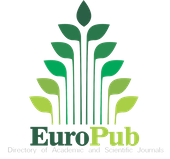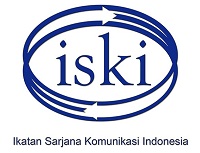BBC Allegedly Used Leave Campaigners Ideology to Frame EU Referendum
Abstract
The news broadcasted on the BBC Great Debate places issues related to the referendum into two categories: our party (United Kingdom) and their party (European Union). According to Edelman’s news frame theory, BBC, through the BBC Great Debate program, creates specific perspectives by using particular words that influence the way audiences understand reality. This study explores the impact of the BBC ideology on frames of the EU referendum broadcasted on the BBC Great Debate and the changes in the Brits’ political attitudes. This research’s paradigm is constructivism with a qualitative approach, and the analytical method used is Edelman’s news frame analysis model. Based on the findings, despite numerous criticisms expressed by leading UK academics regarding BBC’s alignments with Leave campaigners in the first three months of the campaign, BBC continued to frame biased stories. The news packages broadcasted by the BBC were potentially designed to influence the Brits’ political decision, turning their vote from remain to leave the EU. However, a specific survey on the voters should be conducted to profoundly examine whether the BBC Great Debate had significantly changed their political decisions.
Keywords
Full Text:
PDFReferences
BBC. (2020). About the BBC. Retrieved from https://www.bbc.co.uk/aboutthebbc.
Biagi, S. (2016). Media/Impact: An Introduction to Mass Media 12th ed. Boston: Cengage Learning.
Buchanan, T. (2019). Brexit behaviourally: lessons learned from the 2016 referendum. Mind & Society, 18, 13-31.
Chambliss, D.F., & Schutt, R.K. (2018). Making Sense of the Social World: Methods of Investigation. Singapore: SAGE Publications.
Couldry, N., & Hepp, A. (2018). The Mediated Construction of Reality. Cambridge: Polity Press.
Deacon, D., Downey, J., Stanyer, J., & Wring, D. (2017). The Media Campaign: The Issues and Personalities Who Defined the Election. Political Communication in Britain, 183-196.
Edelman, M. (1993). Contestable Categories and Public Opinion. Political Communication, 10(3), 231-242.
Eriyanto. (2012). Analisis Framing: Konstruksi, Ideologi, dan Politik Media. Yogyakarta: PT. LKiS Printing Cemerlang.
Fardiah, D., et al. (2020). Media Literacy for Dissemination Anticipated Fake News on Social Media. MEDIATOR: Jurnal Komunikasi, 13(2), 278-289.
Jackson, D., Thorsen, E., & Wring, D. (2016). EU Referendum Analysis 2016: Media, Voters and the Campaign: Early Reflections from Leading UK Academics. Great Britain: Centre for the Study of Journalism Culture and Community.
Little, W. (2016). Introduction to Sociology–2nd Canadian Edition. Victoria: BCcampus.
Lu, Y., Chu, Y., & Shen, F. (2016). Mass media, new technology, and ideology: An analysis of political trends in China. Global Media and China, 1(1), 70-101.
Prastya, N.M., & Dewi, M. (2020). State News Agency Frames on Terrorist Attack: Study in TVNZ New Zealand and news.lk Sri Lanka. MEDIATOR: Jurnal Komunikasi, 13(2), 191-202.
Randy, D., & Vera, N. (2020, September 30). Analisis Bingkai Deutsche Welle pada Berita tentang Serangan di Hanau. METAKOM: Jurnal Kajian Komunikasi, 4(2), 77-91.
Satriani, A. (2018). Framing Analysis of News Article about Clashes between Police and Terrorist Prisoners in Indonesia Publishing by ABC.net.au and SBS.com. MEDIATOR: Jurnal Komunikasi, 11(2), 248-255.
Silverblatt, A., Ferry, J., & Finan, B. (2015). Approaches to Media Literacy: A Handbook. London: Routledge.
Sparrow, A., & Phipps, C. (2016). EU referendum live: Khan accuses Boris Johnson of leading ‘Project Hate’ in BBC’s Great Debate. Retrieved from theguardian.com/politics/live/2016/jun/21/eu-referendum.
Stojić, M. (2018). Party Responses to the EU in the Western Balkans: Transformation, Opposition or Defiance? Cham, Switzerland: Springer International Publishing.
Taufik, C.M., & Suhaeri, S. (2020). Media Literacy in Information Chaos Era: Qualitative Study Bandung Literacy Activist. MEDIATOR: Jurnal Komunikasi, 13(1), 132-140.
Tuchman, G., & Tuchman, B.W. (1978). Making News: A Study in the Construction of Reality. New York: Free Press.
Yan, F. (2020). Image, Reality and Media Construction: A Frame Analysis of German Media Representations of China. Singapore: Springer Singapore.
Yin, R.K. (2013). Case Study Research: Design and Methods. California: SAGE Publications.
Çakmak, F. (2018). The Role of Ideology in Political Communication and Media. The Journal of Social Sciences Research, Academic Research Publishing Group, 4(12), 813-819.
DOI: https://doi.org/10.29313/mediator.v14i1.6802
Refbacks
- There are currently no refbacks.

This work is licensed under a Creative Commons Attribution 4.0 International License
























